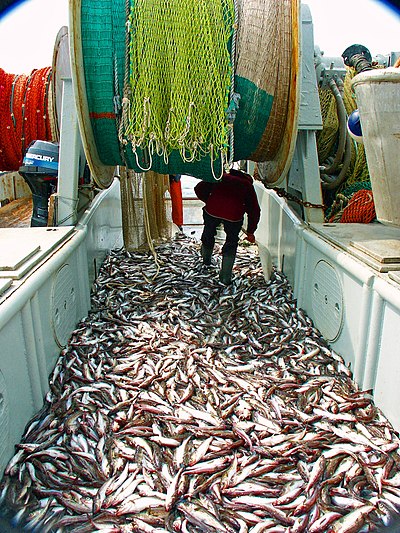n economics, a good is said to be rivalrous or a rival if its consumption by one consumer prevents simultaneous consumption by other consumers, or if consumption by one party reduces the ability of another party to consume it. A good is considered non-rivalrous or non-rival if, for any level of production, the cost of providing it to a marginal (additional) individual is zero. A good is "anti-rivalrous" and "inclusive" if each person benefits more when other people consume it.
Wild fish stocks are a rivalrous good, as the amount of fish caught by one boat reduces the number of fish available to be caught by others.




No comments:
Post a Comment